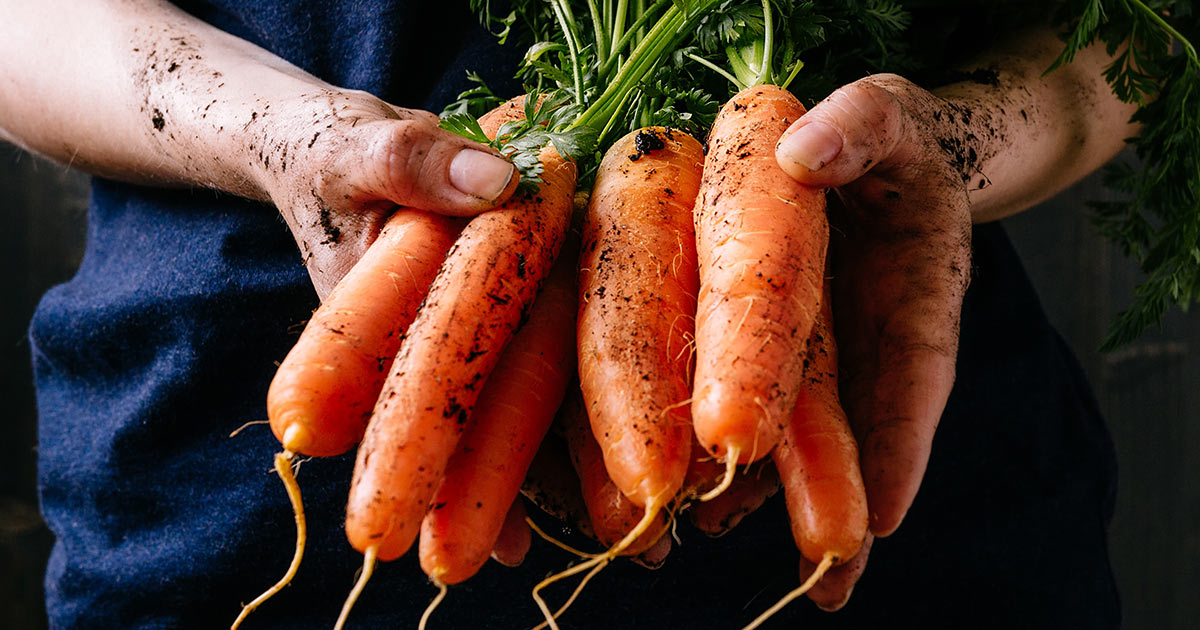
Beta-carotene is a powerful antioxidant found in colorful fruits and vegetables. Ever wondered why carrots are orange? It's because of beta-carotene! This nutrient converts into vitamin A in the body, which is essential for vision, immune function, and skin health. But that's not all. Beta-carotene also helps combat free radicals, reducing the risk of chronic diseases. Including beta-carotene-rich foods in your diet can boost overall health. From sweet potatoes to spinach, many foods offer this beneficial compound. Ready to learn more? Here are 24 fascinating facts about beta-carotene that will surprise you!
What is Beta-Carotene?
Beta-carotene is a red-orange pigment found in plants and fruits, especially carrots and colorful vegetables. It’s a type of carotenoid, which is a group of plant pigments that are important for human health.
- Beta-carotene is a precursor to vitamin A, meaning the body converts it into vitamin A as needed.
- It’s responsible for the orange color in carrots and sweet potatoes.
- Beta-carotene is also found in green leafy vegetables like spinach and kale.
- It was first discovered in 1831 by scientist Heinrich Wilhelm Ferdinand Wackenroder.
Health Benefits of Beta-Carotene
Beta-carotene is known for its numerous health benefits. It plays a crucial role in maintaining good health and preventing various diseases.
- It boosts the immune system by enhancing the function of white blood cells.
- Beta-carotene acts as an antioxidant, protecting cells from damage caused by free radicals.
- It supports eye health and can reduce the risk of age-related macular degeneration.
- Consuming beta-carotene-rich foods can improve skin health and protect against sunburn.
- It may lower the risk of certain cancers, including lung and breast cancer.
Sources of Beta-Carotene
Eating a variety of fruits and vegetables can help you get enough beta-carotene. Here are some of the best sources.
- Carrots are one of the richest sources of beta-carotene.
- Sweet potatoes also contain high levels of this nutrient.
- Pumpkins and squash are excellent sources.
- Dark leafy greens like spinach and kale are packed with beta-carotene.
- Fruits like mangoes and apricots provide a good amount of beta-carotene.
How Beta-Carotene is Absorbed
The body’s ability to absorb beta-carotene can be influenced by several factors. Understanding these can help maximize its benefits.
- Beta-carotene is fat-soluble, meaning it’s better absorbed when consumed with fats.
- Cooking vegetables can increase the bioavailability of beta-carotene.
- The body converts beta-carotene to vitamin A more efficiently when dietary fat is present.
- People with certain health conditions, like cystic fibrosis, may have difficulty absorbing beta-carotene.
Beta-Carotene Supplements
While it’s best to get beta-carotene from food, supplements are also available. However, they come with some considerations.
- Beta-carotene supplements can help people who have difficulty getting enough from their diet.
- High doses of beta-carotene supplements may increase the risk of lung cancer in smokers.
- Supplements are often used to prevent vitamin A deficiency in developing countries.
- It’s important to consult a healthcare provider before starting beta-carotene supplements.
Fun Facts About Beta-Carotene
Beta-carotene has some interesting and lesser-known facts that make it even more fascinating.
Final Thoughts on Beta-Carotene
Beta-carotene, a powerful antioxidant, plays a vital role in maintaining good health. Found in colorful fruits and vegetables, it converts to vitamin A, supporting vision, immune function, and skin health. Consuming a diet rich in beta-carotene can help reduce the risk of chronic diseases like heart disease and cancer. While supplements are available, getting beta-carotene from natural food sources is generally safer and more effective. Remember, balance is key; too much beta-carotene, especially from supplements, can lead to health issues. So, enjoy a variety of beta-carotene-rich foods like carrots, sweet potatoes, and spinach to reap the benefits. By understanding and incorporating beta-carotene into your diet, you can take a simple yet significant step towards better health. Stay informed, eat well, and let nature's vibrant colors boost your well-being.
Was this page helpful?
Our commitment to delivering trustworthy and engaging content is at the heart of what we do. Each fact on our site is contributed by real users like you, bringing a wealth of diverse insights and information. To ensure the highest standards of accuracy and reliability, our dedicated editors meticulously review each submission. This process guarantees that the facts we share are not only fascinating but also credible. Trust in our commitment to quality and authenticity as you explore and learn with us.


